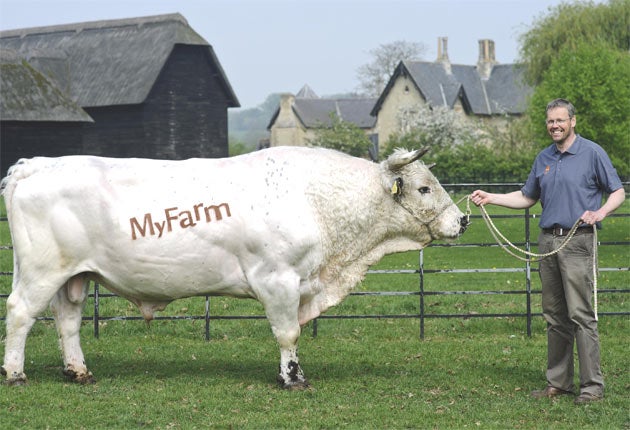Become a farmer for £30 (no experience necessary)

Your support helps us to tell the story
From reproductive rights to climate change to Big Tech, The Independent is on the ground when the story is developing. Whether it's investigating the financials of Elon Musk's pro-Trump PAC or producing our latest documentary, 'The A Word', which shines a light on the American women fighting for reproductive rights, we know how important it is to parse out the facts from the messaging.
At such a critical moment in US history, we need reporters on the ground. Your donation allows us to keep sending journalists to speak to both sides of the story.
The Independent is trusted by Americans across the entire political spectrum. And unlike many other quality news outlets, we choose not to lock Americans out of our reporting and analysis with paywalls. We believe quality journalism should be available to everyone, paid for by those who can afford it.
Your support makes all the difference.City dwellers and suburban citizens are to be offered an unprecedented opportunity to become farmers of a 2,500-acre estate, without so much as getting mud on their boots or dirt on their hands.
Up to 10,000 volunteer "farmers" are being asked to take part in a unique online experiment that involves taking real decisions on managing Wimpole Home Farm, a 200-year-old mixed farm in Cambridgeshire owned by the National Trust.
The online farmers will face the sort of choices that real farmers have to make each year: decisions influenced by the vagaries of the weather, fluctuating crop prices and other unpredictable factors that can upset the agricultural apple cart.
Those who sign up to take part will have to make at least 12 major decisions a year about how the farm is to be run, whether, for instance, to carry on harvesting a wet cornfield and incur the additional cost of drying the grain, or to delay the harvest and see if the weather improves.
Each agricultural dilemma will require a democratic vote of all the registered subscribers to the farm's website, and a clear majority is all that will be needed for the vote to be carried and the policy to be enacted.
Dame Fiona Reynolds, the director general of the National Trust, said that the aim of the experiment is to bring people closer to the natural landscape that ultimately provides the rich assortment of food products that adorn supermarket shelves, usually in shiny plastic film.
"This is all about reconnecting people with where food comes from... We have no idea about whether this will work but we're eager to see what happens," Dame Fiona said.
"As the country's biggest farmer – more than 80 per cent of the 250,000 hectares [618,000 acres] of land under our control is farmed in some way – it's our role to reconnect people with farming to promote better understanding and greater protection for the land on which we all depend," she said.
The experiment, called MyFarm, takes inspiration from the popular Facebook game FarmVille, where players manage a virtual farm by ploughing land, planting virtual crops and rearing virtual animals. However, the difference is that the crops and animals on MyFarm are real, as are the decisions made by the 10,000 farmers who will each pay £30-a-year subscription to take part in the experiment.
Richard Morris, the National Trust's farm manager at Wimpole, said that certain decisions that will affect the long-term viability of the protected estate will not be offered to the MyFarm subscribers, but other important choices, such as which rare-breed bull to buy for breeding, will be carried by a vote.
"MyFarm is FarmVille for real: real farming decisions with real farming consequences. By influencing the work at Wimpole, our farmers will start to understand the effects and implications of their own decisions," Mr Morris said. "Farming is a compromise, there is never a right or a wrong answer."
Wimpole Home Farm near Royston is a centre for rare breeds of cattle, pigs and sheep. The estate includes 1,631 acres of arable land and came to the National Trust in 1976. The farm is in the second year of converting to organic status.
Join our commenting forum
Join thought-provoking conversations, follow other Independent readers and see their replies
Comments